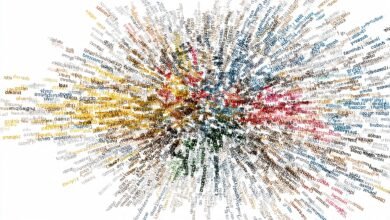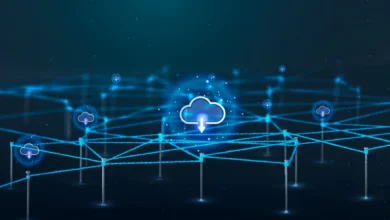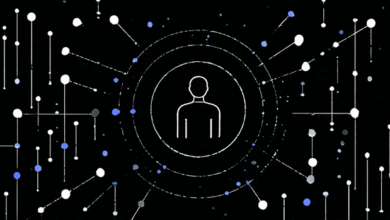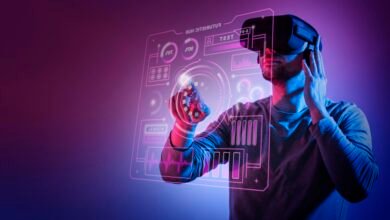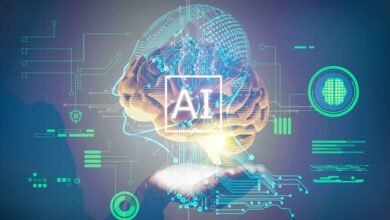Smart Contracts and AI Automating Business Processes
Discover how AI Automating smart contracts automate business processes, reduce costs, and transform industries through blockchain automation.

The convergence of artificial intelligence and smart contracts represents one of the most transformative technological partnerships of the digital age. As businesses worldwide seek innovative solutions to streamline operations, reduce overhead costs, and eliminate human error, the integration of AI and smart contracts emerges as a game-changing approach to automating business processes. This powerful combination leverages the immutable, transparent nature of blockchain technology with the adaptive intelligence of AI algorithms, creating self-executing digital agreements that can learn, adapt, and make informed decisions in real-time.
Smart contracts have already revolutionized how organizations handle transactions and agreements by eliminating intermediaries and ensuring transparent, trustless execution of contractual terms. However, traditional smart contracts operate within predefined parameters and struggle with complex, nuanced decision-making. The introduction of artificial intelligence addresses these limitations by adding a layer of cognitive capability that enables contracts to interpret real-world data, predict outcomes, and adjust parameters dynamically based on evolving circumstances.
From supply chain management and financial services to healthcare and real estate, AI-powered smart contracts are reshaping industries by offering unprecedented levels of efficiency, accuracy, and automation. According to market projections, the global blockchain AI market is expected to reach USD 980.70 million by 2030, growing at a CAGR of 24.06%. This exponential growth underscores the transformative potential of merging these technologies for business process automation.
In this comprehensive guide, we explore how smart contracts and AI work together to revolutionize business automation, examine real-world applications across various sectors, and discuss the benefits, challenges, and future trends shaping this technological revolution. Whether you’re a business leader considering implementation or a technology enthusiast seeking deeper insights, this article provides actionable insights into how AI-driven smart contracts can transform organizational operations and drive competitive advantage in an increasingly digital marketplace.
Smart Contracts: The Foundation of Blockchain Automation
What Are Smart Contracts
Smart contracts are self-executing digital agreements with contractual terms directly encoded into computer code. These blockchain-based contracts run on distributed ledger technology platforms like Ethereum, automatically enforcing and executing agreed-upon conditions when predetermined criteria are met. Unlike traditional contracts that require manual oversight and third-party intermediaries, smart contracts operate autonomously, ensuring transparency, immutability, and trustless execution.
The fundamental architecture of a smart contract consists of coded instructions that trigger specific actions when certain conditions are fulfilled. For instance, in an insurance scenario, a smart contract could automatically release claim payments when flight delay data confirms a covered event occurred. This automated contract execution eliminates paperwork, reduces processing time from weeks to minutes, and significantly lowers administrative costs.
Core Characteristics of Smart Contracts
Blockchain technology provides the foundational infrastructure that makes smart contracts revolutionary. The immutable nature of blockchain ensures that once deployed, contract code cannot be altered without consensus, providing security against tampering and fraud. Additionally, the transparent nature of blockchain networks allows all parties to verify contract execution independently, fostering trust without requiring intermediaries.
Smart contracts excel at handling straightforward, rule-based transactions such as payment releases, asset transfers, and ownership verification. However, traditional smart contracts face limitations when dealing with complex, real-world scenarios requiring contextual, predictive analysis, or adaptive decision-making. This is precisely where artificial intelligence integration becomes transformative.
The Role of Artificial Intelligence in Smart Contracts
How AI Enhances Smart Contract Functionality
Artificial intelligence brings cognitive capabilities to smart contracts, transforming them from simple execution engines into intelligent, adaptive systems capable of sophisticated decision-making. AI-powered smart contracts utilize machine learning algorithms, natural language processing (NLP), and predictive analytics to interpret complex data, learn from historical patterns, and make informed decisions in dynamic environments.
The integration of AI in smart contracts enables several advanced capabilities. Machine learning algorithms can analyze vast amounts of historical and real-time data to identify patterns, predict outcomes, and optimize contract parameters automatically. Natural language processing allows computers to understand and process human language, making contract creation and interpretation more accessible to non-technical users. Predictive analytics empowers contracts to anticipate future events, enabling proactive responses rather than reactive adjustments.
Real-Time Adaptation and Dynamic Decision-Making
One of the most significant advantages of AI-driven smart contracts is their ability to adapt to real-time data and changing circumstances. Traditional smart contracts follow rigid, predefined rules that cannot adjust to unexpected situations. In contrast, AI-powered smart contracts can interpret contextual information, assess multiple variables simultaneously, and modify execution parameters dynamically.
For example, in logistics and supply chain management, an AI smart contract can automatically adjust delivery schedules based on traffic data, weather conditions, and warehouse capacity. If a shipment is delayed due to unforeseen circumstances, the AI component can recalculate optimal routes, notify relevant parties, and adjust payment terms accordingly—all without human intervention. This level of business process automation significantly reduces delays, minimizes losses, and improves overall operational efficiency.
Key Benefits of AI-Powered Smart Contracts for Business Automation

Enhanced Efficiency and Cost Reduction
Automating business processes through AI and smart contracts delivers substantial efficiency gains and cost savings. By eliminating manual intervention, reducing paperwork, and streamlining transaction processing, organizations can allocate resources more effectively and achieve better return on investment. Studies indicate that businesses implementing AI-powered automation can reduce manual tasks by up to 30%, translating into significant overhead savings.
The elimination of intermediaries represents another crucial cost-saving benefit. Traditional contracts often require lawyers, brokers, or other third parties to oversee execution and dispute resolution, adding time and expense to every transaction. Smart contracts execute automatically based on coded conditions, while AI handles complex decision-making that would typically require human expertise. This combination dramatically reduces transaction costs while maintaining accuracy and compliance.
Improved Accuracy and Error Reduction
Human error poses a significant challenge in traditional contract management, leading to financial losses, compliance issues, and operational disruptions. AI-powered smart contracts minimize these risks by automating decision-making processes and eliminating manual data entry. Machine learning algorithms can process vast amounts of information with precision, ensuring that contract terms are executed correctly and consistently.
Furthermore, AI integration enables continuous learning and improvement. As AI smart contracts process more transactions, they refine their algorithms based on outcomes and patterns, becoming increasingly accurate over time. This adaptive capability ensures that business automation systems evolve alongside organizational needs and market dynamics.
Real-Time Data Analysis and Predictive Insights
Artificial intelligence excels at analyzing real-time data and generating predictive insights that inform contract execution. In manufacturing environments, for instance, AI can monitor machinery performance data and trigger smart contracts to automatically order replacement parts or schedule maintenance before breakdowns occur. This predictive approach minimizes downtime, extends equipment lifespan, and optimizes operational continuity.
The ability to process and interpret external data sources through oracles further enhances AI smart contract functionality. By accessing real-world information such as market prices, weather conditions, or regulatory changes, AI-powered contracts can adjust terms dynamically to remain relevant and optimal in changing environments.
Industry Applications of Smart Contracts and AI
Financial Services and Decentralized Finance (DeFi)
The financial sector represents one of the most promising domains for AI-powered smart contracts. In decentralized finance (DeFi) applications, these contracts automate loan approvals, adjust interest rates based on market conditions, and execute complex trading strategies without intermediaries. AI algorithms analyze credit risk, financial profiles, and market trends to optimize lending terms and investment strategies dynamically.
Automated trading systems powered by AI and blockchain can execute trades based on real-time market data and predictive analytics, responding to opportunities and risks faster than human traders. Additionally, AI-driven smart contracts enhance fraud detection by identifying anomalous transaction patterns and suspicious activities, protecting both institutions and customers from financial crimes.
Supply Chain Management and Logistics
- Supply chain automation through AI smart contracts addresses long-standing challenges in logistics, including tracking inefficiencies, payment disputes, and quality control issues. By integrating IoT sensors with blockchain-based smart contracts, organizations can monitor shipments in real-time, automatically verify delivery milestones, and trigger payments upon successful completion.
- Artificial intelligence enhances these capabilities by predicting potential disruptions, optimizing inventory levels, and adjusting procurement schedules based on demand forecasts. For example, if AI detects an impending supply shortage, the smart contract can automatically place orders with alternative suppliers, ensuring business continuity without manual intervention.
Healthcare and Medical Records Management
In healthcare, AI-powered smart contracts facilitate secure patient data sharing, automate insurance claims processing, and manage service-level agreements between providers. The combination of blockchain’s security features and AI’s analytical capabilities ensures that sensitive medical information remains protected while enabling authorized access for treatment and billing purposes.
Automated claims processing represents a particularly valuable application, where AI smart contracts can verify patient data, assess treatment costs, and process insurance payments automatically once services are delivered. This automation reduces administrative burden, minimizes billing errors, and accelerates reimbursement cycles, benefiting both providers and patients.
Insurance and Claims Automation
The insurance industry benefits significantly from AI and smart contracts integration through automated underwriting, claims processing, and fraud detection. AI algorithms can assess risk profiles by analyzing health records, driving habits, or property data, dynamically adjusting premiums based on real-time information. When insurable events occur, smart contracts automatically verify conditions and process payouts without requiring manual review.
For instance, in parametric insurance products, AI-powered smart contracts monitor external data sources such as weather conditions or flight information. If predetermined triggers are met—such as a flight delay exceeding two hours—the contract automatically releases compensation to policyholders, eliminating lengthy claims processes and improving customer satisfaction.
Real Estate Transactions
- Real estate automation through AI smart contracts streamlines property transactions by automating title transfers, escrow management, and payment processing. Traditional real estate deals involve multiple intermediaries, extensive paperwork, and significant closing costs. Blockchain-based smart contracts reduce these inefficiencies by enabling trustless transactions where ownership automatically transfers upon payment verification.
- Artificial intelligence adds value by conducting predictive risk analysis, assessing property valuations based on market trends, and identifying potential legal or compliance issues before closing. This comprehensive approach accelerates transaction timelines, reduces costs, and minimizes disputes in property exchanges.
Technical Integration: How AI and Smart Contracts Work Together
Blockchain Infrastructure and AI Processing
The technical architecture underlying AI-powered smart contracts involves careful coordination between blockchain networks and AI processing systems. Since blockchain networks prioritize security and immutability, running computationally intensive AI algorithms directly on-chain can strain network resources and increase transaction costs. To address this challenge, many implementations utilize off-chain AI processing with on-chain execution.
In this hybrid approach, artificial intelligence models analyze data and make decisions in off-chain environments where computational resources are more abundant and cost-effective. Once the AI reaches a decision, it communicates the results to the smart contract through secure oracle networks. The contract then executes the predetermined actions based on these AI-generated insights, maintaining blockchain security while leveraging AI capabilities.
Oracle Networks and External Data Integration
Oracle networks serve as bridges between blockchain smart contracts and external data sources, enabling contracts to access real-world information necessary for informed decision-making. In AI-powered systems, oracles feed diverse data streams—including market prices, weather conditions, IoT sensor readings, and social media sentiment—into AI models for analysis.
The quality and reliability of Oracle data critically impact smart contract execution accuracy. Decentralized oracle networks enhance security by aggregating information from multiple sources, reducing the risk of data manipulation or single points of failure. When combined with AI verification systems that detect anomalous or inconsistent data, this architecture ensures that smart contracts execute based on trustworthy information.
Natural Language Processing for Contract Generation
Natural language processing (NLP) represents a crucial AI technology enabling broader adoption of smart contracts by making them more accessible to non-technical users. Advanced NLP systems can translate legal language into executable code, automating contract drafting and reducing the specialized knowledge required for implementation.
For example, a business manager could describe contract terms in plain English, and an AI system would automatically generate the corresponding smart contract code, complete with appropriate logic, conditions, and execution parameters. This democratization of blockchain automation accelerates adoption by lowering technical barriers and reducing dependency on specialized developers.
Challenges and Considerations in AI Smart Contract Implementation
Scalability and Computational Requirements
Running AI algorithms requires substantial computational resources, which can pose scalability challenges for blockchain networks. As transaction volumes increase and AI models become more complex, networks may experience congestion and rising costs. Layer 2 scaling solutions and side-chains offer potential remedies by processing AI computations off the main blockchain while maintaining security through periodic settlement.
Organizations implementing AI-powered smart contracts must carefully consider infrastructure requirements, balancing the sophistication of AI models against network capacity and cost constraints. Optimizing AI algorithms for efficiency and leveraging edge computing where appropriate can help manage these technical challenges while maintaining performance standards.
Data Privacy and Security Concerns
While blockchain provides robust security through cryptographic techniques and distributed consensus, integrating artificial intelligence introduces additional privacy considerations. AI models often require access to sensitive data for training and decision-making, raising concerns about data exposure and unauthorized access. Organizations must implement comprehensive data governance frameworks that protect confidential information while enabling AI functionality.
Privacy-preserving techniques such as federated learning, homomorphic encryption, and secure multi-party computation offer promising approaches to training AI models on sensitive data without exposing underlying information. These technologies enable smart contracts to leverage AI insights while maintaining strict data confidentiality standards.
Regulatory Compliance and Legal Frameworks
The rapid evolution of AI and blockchain technology has outpaced regulatory frameworks in many jurisdictions, creating compliance uncertainties for organizations implementing AI-powered smart contracts. Questions regarding legal enforceability, liability attribution, and jurisdictional authority remain unresolved in many contexts, particularly for cross-border transactions.
Businesses must proactively engage with legal experts and regulatory bodies to ensure their AI smart contract implementations comply with applicable laws and standards. As regulatory frameworks mature, staying informed about evolving requirements and maintaining flexibility to adapt systems accordingly will be essential for long-term success.
Trust and Transparency in AI Decision-Making
While blockchain provides transparent, verifiable transaction records, AI algorithms often operate as “black boxes” where decision-making processes are not easily interpretable. This opacity can create trust issues, particularly in regulated industries like healthcare and finance, where stakeholders require clear explanations for automated decisions.
Addressing this challenge requires implementing explainable AI techniques that provide interpretable insights into how smart contracts reach decisions. Transparency mechanisms such as audit trails, decision logs, and visualization tools help stakeholders understand and validate AI-driven outcomes, fostering confidence in automated business processes.
Best Practices for Implementing AI-Powered Smart Contracts
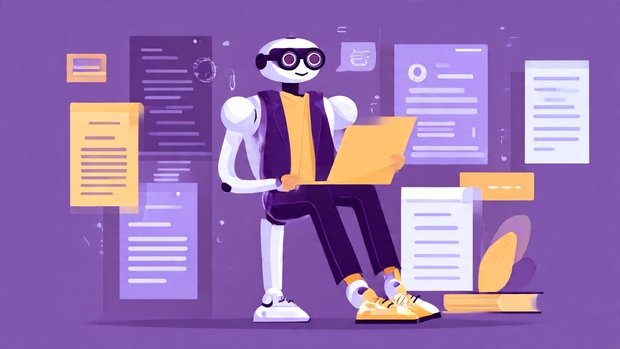
Starting with Clear Business Objectives
Successful implementation of AI and smart contracts begins with clearly defined business objectives and use cases. Organizations should identify specific pain points that automation can address, such as reducing processing times, eliminating intermediaries, or improving accuracy. Focusing on concrete, measurable goals ensures that technology investments deliver tangible value and return on investment.
Conducting thorough feasibility assessments helps determine whether AI-powered smart contracts represent the optimal solution for identified challenges. In some cases, simpler automation approaches or process improvements may achieve desired outcomes more cost-effectively than full blockchain implementation.
Choosing the Right Technology Stack
Selecting appropriate blockchain platforms and AI tools represents a critical decision influencing system performance, scalability, and development complexity. Ethereum remains the most established platform for smart contract development, offering robust developer tools and extensive community support. However, alternative platforms like Binance Smart Chain, Polygon, and Solana may offer advantages in terms of transaction speed and cost efficiency.
For AI integration, organizations should evaluate machine learning frameworks, NLP engines, and oracle solutions based on specific requirements. Open-source tools like TensorFlow and PyTorch provide powerful capabilities for building custom AI models, while specialized blockchain AI platforms offer pre-built solutions tailored for smart contract environments.
Ensuring Robust Testing and Security Audits
Given the immutable nature of blockchain smart contracts, thorough testing before deployment is absolutely critical. Bugs or vulnerabilities in deployed contracts cannot be easily fixed and may result in significant financial losses or operational disruptions. Comprehensive testing protocols should include unit tests, integration tests, and stress tests simulating various edge cases and attack scenarios.
Security audits by independent experts provide additional assurance that AI-powered smart contracts operate as intended without vulnerabilities. Automated security tools can identify common coding errors and potential exploits, while manual reviews by experienced auditors catch nuanced issues that automated systems might miss.
Implementing Human Oversight Mechanisms
Despite the autonomous nature of AI smart contracts, maintaining appropriate human oversight remains essential, particularly for high-stakes decisions or unusual situations. Implementing human-in-the-loop mechanisms allows organizations to review and approve critical actions before execution, balancing automation efficiency with risk management.
These oversight systems should include clear escalation protocols, alert mechanisms for anomalous situations, and approval workflows for significant transactions. As organizations gain confidence in AI decision-making performance over time, they can gradually adjust oversight levels to optimize the balance between automation and control.
Future Trends and Innovations in AI Smart Contracts
Enhanced Natural Language
Advances in natural language processing will make AI-powered smart contracts increasingly accessible to non-technical users. Future systems will understand complex legal language, interpret ambiguous terms, and even negotiate contract conditions autonomously on behalf of parties. This evolution will democratize blockchain technology, enabling broader adoption across industries and organizational sizes.
Conversational AI interfaces will allow users to create and modify smart contracts through natural dialogue, eliminating the need for coding expertise. These systems will also provide real-time explanations of contract terms, helping parties understand implications before committing to agreements.
Cross-Chain Interoperability
As blockchain ecosystems mature, interoperability between different networks will become increasingly important for AI smart contracts. Cross-chain protocols will enable contracts to access data and execute transactions across multiple blockchains, expanding functionality and reducing fragmentation. This interoperability will allow organizations to leverage the unique strengths of different blockchain platforms within integrated automation systems.
AI algorithms will play crucial roles in managing cross-chain coordination, optimizing transaction routing, and ensuring consistent execution across diverse network environments. These capabilities will enable more sophisticated business process automation spanning multiple technological platforms and organizational boundaries.
Integration with Internet of Things (IoT)
The convergence of AI smart contracts, blockchain, and IoT devices promises unprecedented levels of automation and real-time responsiveness. Connected sensors can feed continuous data streams into AI models, enabling contracts to respond instantly to physical world events. In manufacturing, supply chain, and infrastructure management, this integration will enable self-optimizing systems that adjust operations dynamically based on real-time conditions.
For example, smart buildings could use AI-powered contracts to automatically optimize energy consumption based on occupancy patterns, weather forecasts, and utility pricing, while IoT sensors monitor environmental conditions and equipment performance continuously. This holistic integration creates intelligent environments that operate efficiently with minimal human intervention.
Autonomous Organizations and Decentralized Governance
AI-powered smart contracts will increasingly enable decentralized autonomous organizations (DAOs) that operate through collective decision-making encoded in blockchain protocols. These organizations use smart contracts to automate governance processes, resource allocation, and strategic decisions based on member votes or AI-generated recommendations.
As these systems mature, artificial intelligence will play expanding roles in analyzing proposals, predicting outcomes, and optimizing organizational operations. This evolution could fundamentally transform corporate structures, enabling more distributed, transparent, and efficient forms of collaboration and value creation.
More Read: Blockchain for AI Decentralized Machine Learning Networks
Conclusion
The integration of smart contracts and AI represents a paradigm shift in how businesses automate processes, execute agreements, and optimize operations. By combining blockchain’s immutable, transparent infrastructure with artificial intelligence’s adaptive decision-making capabilities, organizations can create intelligent systems that operate autonomously while continuously learning and improving. From financial services and supply chain management to healthcare and real estate, AI-powered smart contracts are demonstrating transformative potential across diverse industries.
While challenges related to scalability, privacy, regulation, and trust remain, ongoing technological advances and evolving best practices are steadily addressing these concerns. As we look toward the future, the convergence of AI, blockchain, and emerging technologies like IoT promises even more sophisticated automation capabilities that will reshape business landscapes globally. Organizations that embrace AI-driven smart contracts strategically, with clear objectives, robust governance, and commitment to continuous innovation, will position themselves to thrive in an increasingly automated, efficient, and intelligent digital economy.



